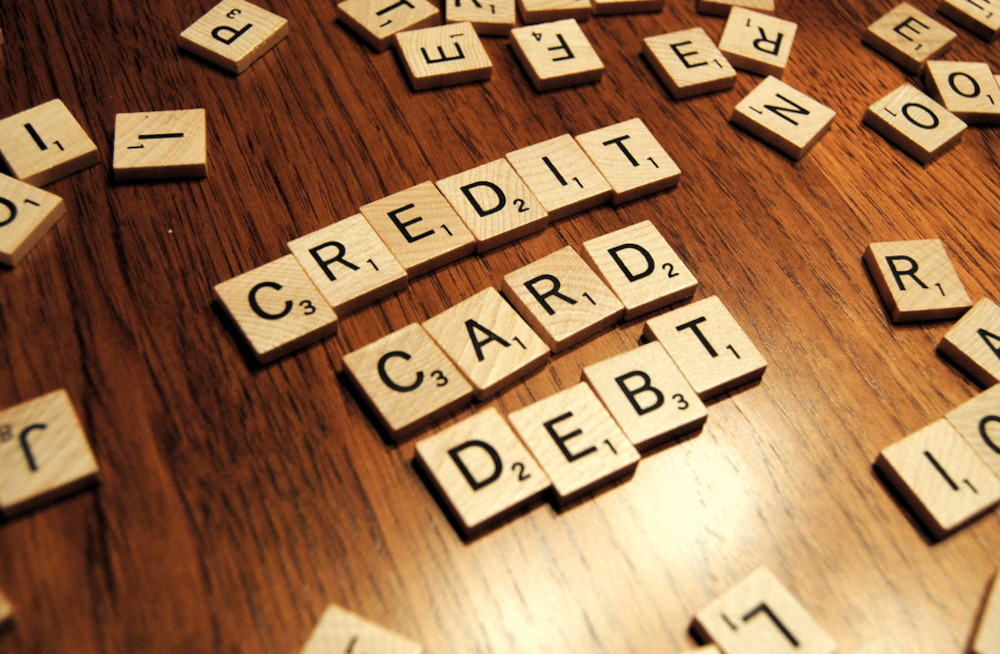Is Debt Evil?
“Neither a borrower nor a lender be.”
Polonius, Hamlet
The words of Polonius are wise and still hold true today. Whenever you can avoid borrowing or lending money, you’re better off. But sometimes it’s necessary to borrow money, and in your lifetime it’s almost guaranteed that you’ll need to borrow at some point.
Having debt isn’t necessarily a bad thing. There are some things you may need to buy that you can’t pay for with the cash you have on hand or in savings. A new car is a good example, a home is another one. Most people don’t have $35,000 for a new car hiding between the couch cushions. Even if you do have that much money in a savings account, it’s not always wise to spend it on such a large purchase. Remember how we talked about having reserves in case of an emergency? You always want to keep cash in an account somewhere in case hard times come.
That means that to buy a car or a home, you need to incur debt. And that’s not wrong. Paying for a large purchase over time is a smart move, providing you can afford the payments.
There’s That “Want” Thing Again
Getting into debt over something you need (like a car or a home) is one thing. Incurring debt for the fun things you want is a recipe for trouble. I’ll make it simple: Don’t do it. Ever.
Debt Makes for Bad Relationships
If you do have to borrow money, the worst place to get it is from a friend or relative. I’ve done it before and I have always regretted it, every time. I’ll never do it again.
At best, it makes things awkward. If you go out with a friend to whom you owe money, they’ll always be wondering, “If you can pay for this movie and a giant soda, how come you haven’t paid me back yet?” They may not say it out loud, but they’re thinking it on some level.

At worst, it can taint a friendship forever. We once borrowed a large sum of money from a friend. We set up a regular payment plan. A year later, our income dropped and we started missing payments. Initially it was okay, but as things progressed she started getting testy about it. She got angry and made some insults that, while true, stung for a long time. Eventually we paid the loan in full, but the damage was done. We’re all still cordial to each other, but I’ll never look at her the same way and probably vice versa.
A bank or a distant acquaintance would have been a much better option. A bank might send you threatening letters if you miss payments, but you’re not going to run into them at a party or see them on Facebook.
I’ve seen relatives borrow from each other and it’s never turned out well. Resentments always seem to come up, and it’s hard to forget them even after the money is paid back.
Interest
Interest is money you pay to a lender on top of the loan for the privilege of borrowing money.
It’s rare to borrow money without paying interest. Interest is how banks make money. Unfortunately, they’re not giving you a loan to make you happy.
The higher the interest rate, the more money the lender makes off of you, and the harder it is to pay it back. So if you do have to borrow money, try to get the lowest interest rate you can find. Unlike food, the money doesn’t lose quality the less you pay — it’s the same money.
The interest rate you pay is based on:
- How much money you make
- How much money you have or the value of any assets you own
- Your credit score (more on this later)
- What the bank has set as its minimum rate
The irony of borrowing money is that the more money you have, the more money you can borrow and the easier it is to get a loan and a low interest rate. When you own a home, they consider it collateral. If you can’t pay the loan back, they can take your home and sell it to get the money. That sounds unfair, but that’s how it works. The banks want to loan money to someone who is a very low risk. They want to make sure they’ll get paid back.
Would they rather give money to an unemployed dog walker, or to a highly paid lawyer with a home and a large savings account? Hmmm. The unfortunate irony is that when you don’t need money, you can get it pretty easily.
Sometimes you can refinance a loan to get a better interest rate. So if your circumstances and your credit improve, you may be able to find a lender to buy your loan from your bank and give you a better deal.
Credit Card Dos and Don’ts
I saved credit cards for last, because it’s the easiest way to get into trouble with debt. However, they can also be very useful.

Credit cards are sometimes necessary to do the things you want as an adult. For example, you need a credit card to rent a hotel room or a car, even if you intend to pay in cash. So it’s good to get a credit card as early as you can, just for that purpose
Never Pay an Annual Fee
The cardinal rule of getting a credit card is never pay an annual fee. Some credit cards will charge a fee anywhere from $25 – $600 per year just to own the card. Even if you don’t use it, you still pay the fee. It’s never worth it, no matter how many deals they entice you with. There are plenty of credit cards that don’t charge an annual fee. It’s such a horrible waste that it’s worth repeating: Never pay an annual fee!
Never Pay Interest
The next most important rule of credit cards is never pay interest if you can avoid it. As I covered earlier, banks make money by charging you interest. Credit card interest rates are usually super high, sometimes 29%. What does that look like when you owe a lot of money?
It’s hell. It’s depressing, and it’s almost impossible to get out of the cycle.
A few years ago, I used a credit card to pay for plane tickets and other things for a freelance gig where I traveled a lot. I got reimbursed for all those things, and my intention was to pay off the cards as soon as I got the money back.
Only I didn’t. And the debt piled up.
Even though I stopped using the card, the interest rate made the balance climb higher and higher. Most of the time, I could only afford to make the minimum payment. Unfortunately, that minimum did not reduce my debt one cent. In fact, it kept getting worse. To explain , here’s the math:
| Original Amount Owed: | $5000 |
| Annual Interest Rate: | 29% |
| Monthly Increase on Amount Owed: | 124.00 |
| Minimum Payment: | 55.00 |
| Amount Owed after Paying Minimum: | $5069 |
You see how this was not ever going to work, right? By paying only the monthly minimum, my debt was actually increasing. The only way to start paying the debt down was to pay more each month than the increase caused by interest. After a a while I managed to do that, but it still went down very slowly. Even by paying more than double the minimum, it would have taken several years to pay off that debt. And I would have paid way more than the original $5,000 I borrowed.
That was a hard and scary lesson. It’s incredibly difficult to get out of credit card debt once you start the cycle of interest.
So how do you get a credit card that doesn’t charge an interest rate?
You can’t. But, you can get out of paying interest. It’s not illegal or some weird loophole. It’s easy and anyone can do it.
The “trick” is to never charge anything to a credit card that you can’t pay off within the next 30 days. Maybe that sounds weird, and you might ask, “Why would I even need a credit card if I would have the money 30 days later anyway?”
There are a couple of reasons. First, maybe you need to make a large purchase before you get your paycheck. Perhaps your car needs a repair that costs more money than you have on hand, but you need your car to get to work tomorrow. You can’t wait for your paycheck, so the credit card makes it possible.
Also, some credit cards give you rewards for using them. For example, my Discover Card pays me 5% every month for certain types of purchases. The more I use the card, the more money I earn. So I make smaller purchases that I can easily pay off within 30 days and earn some cash in the process.
If you don’t charge more than what you can afford every month, you’ll never be in over your head.
The other advantage of using this method is that you’ll never pay interest. Credit cards only charge interest every month based on your current statement balance. If you pay that full amount when your payment is due — instead of the small minimum payment — you’ll never pay interest. It’s magical, and it works.
Never pay interest on credit cards if you can avoid it.
Student Loans
Most people these days follow the college path thinking that it will guarantee a great job after graduation. While a college degree can help you earn more at most any job, there are definitely no guarantees that you’ll get a job in the field you studied. Most trade schools, however, offer job placement after graduation. And typically the cost of a trade school is much lower than a university. There’s nothing wrong with going to a university to get a degree, but it can be expensive.
There are alternatives to taking out loans. The government offer grants to new students, and there are plenty of scholarships for homeschoolers. You can think creatively and come up with a plan to get your degree without acquiring loads of debt.
I’ve worked with people who make well over $200,000 per year and are still working to pay off their student loans. You don’t want to be carrying student loan debt twenty years after graduation.
Summing it Up
The key things I hope you take away from this are:
- Borrowing money is sometimes necessary, but you need to do it smart.
- Avoid the snowball effect by paying off your credit card debt every month.
- Need or want?
The average American carries about $96,000 in debt between credit cards, student loans, auto loans, and mortgages. Do you want to be average, or would you rather be free?
